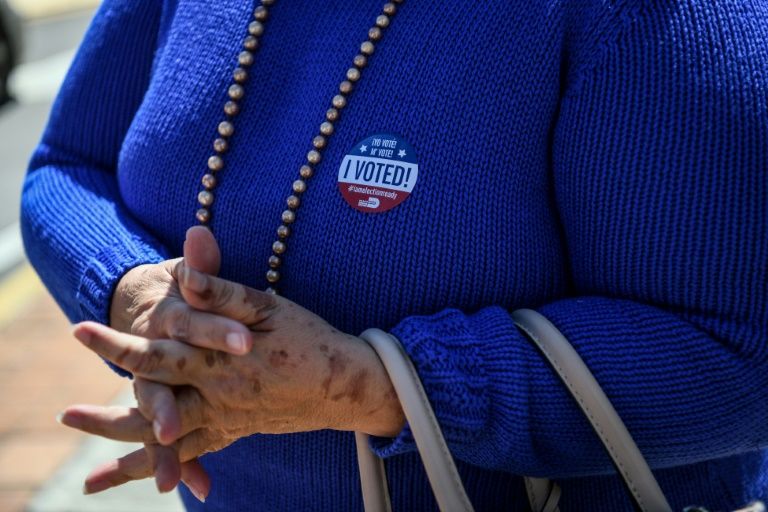‘I VOTED!’: Florida ex-inmates cast ballots
The line for early voting ahead of the November 3 election was long under the hot Miami sun, but it was nothing compared to the years Guanipa and others like her have been fighting to be allowed to vote again.
“When I was selecting the president, I was feeling like I’m walking toward my final freedom, or total freedom, after this conviction,” the 58-year-old told AFP.
Guanipa, who is originally from Venezuela, was released from prison in 2007 after serving nearly 12 years on a drug distribution charge.
“It’s freedom, it’s power, it’s voice,” she added after casting her first ballot since the 1992 election.
One hundred and fifty years ago, a law designed to prevent newly freed slaves from voting also disenfranchised ex-convicts.
In 2018, Floridians voted for Amendment 4, which restored the unconditional right to vote to 1.4 million ex-felons, except for those guilty of rape or murder.
After Guanipa’s release from prison, she founded the YG Institute, an NGO that helps other ex-convicts in their transition to freedom.
Its not clear how many ex-cons now eligible have registered to vote, but an estimate from the Tampa Bay Times, Miami Herald and ProPublica put the number at 31,400.
However, simply serving out their prison term is not enough in Florida. Ex-convicts are required to first repay their debts to the judicial system — fines, legal fees, damages.
The law disproportionately affects Hispanic and Black voters. For some human rights activists, the legislation is a glaring example of voter suppression among minorities, who tend to vote Democratic.
Desmond Meade, also an ex-convict and leader of Florida Rights Restoration Coalition, called for a march to the polls for people like him.
“I am 53 and this is my very first presidential election I’ve ever voted,” he told reporters.
Disclaimer: Validity of the above story is for 7 Days from original date of publishing. Source: AFP.


